Are you a reader of this fine (if I do say so myself) AAR? Want to join in? You're in luck! We actually have a voting spot open. Simply create a character in the admin thread!
Tukhachevsky's Army and the Politburo (Interactive TFH 4.02) -- Update thread
- Thread starter Avindian
- Start date
-
We have updated our Community Code of Conduct. Please read through the new rules for the forum that are an integral part of Paradox Interactive’s User Agreement.
You are using an out of date browser. It may not display this or other websites correctly.
You should upgrade or use an alternative browser.
You should upgrade or use an alternative browser.
Chapter 19: The review board
1 March 1941, HQ of the Army Chief of Staff
Generals and Marshals of the Soviet Union looked around, confused, as they waited for the arrival of “the Army Chief of Staff.” It was especially confusing because everybody knew that Marshal Vatutin and Marshal Tukhachevsky were busily planning the spring campaigns in Europe and Asia elsewhere.
Yet, there was “an Army review” all the same. After a few moments, Vyacheslav Molotov walked in. A few, just barely inaudible, groans resounded as he walked. Molotov, who had not held an important position in years, maintained any semblance of power he had purely at the sufferance of Stalin and, in particular, his willingness to take on any task and achieve results without regard for cost. One particularly brave General even (without a hint of disrespect, making it all the more disrespectful) inquired as to whether Comrade Molotov might be lost. He simply glared.
Another civilian entered the room. This one did not occasion jokes or ribaldry; quite the opposite.
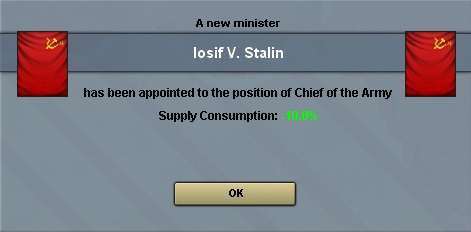
Everybody got up and saluted for the General Secretary. Stalin nodded to Molotov, then took the seat at the head of the table. “I apologize for the maskirovka [1], my friends, but we cannot bother the hardworking servants of the Soviet Union with simple matters of discipline, can we? I am only too delighted that I can relieve some of the unpleasant administrative burdens from the shoulders of our heroic Marshals. Shall we begin?”
Stalin’s pointed refusal to even look at the disrespectful General simply further reduced the temperature of the room. Molotov put an image on the easel behind him.
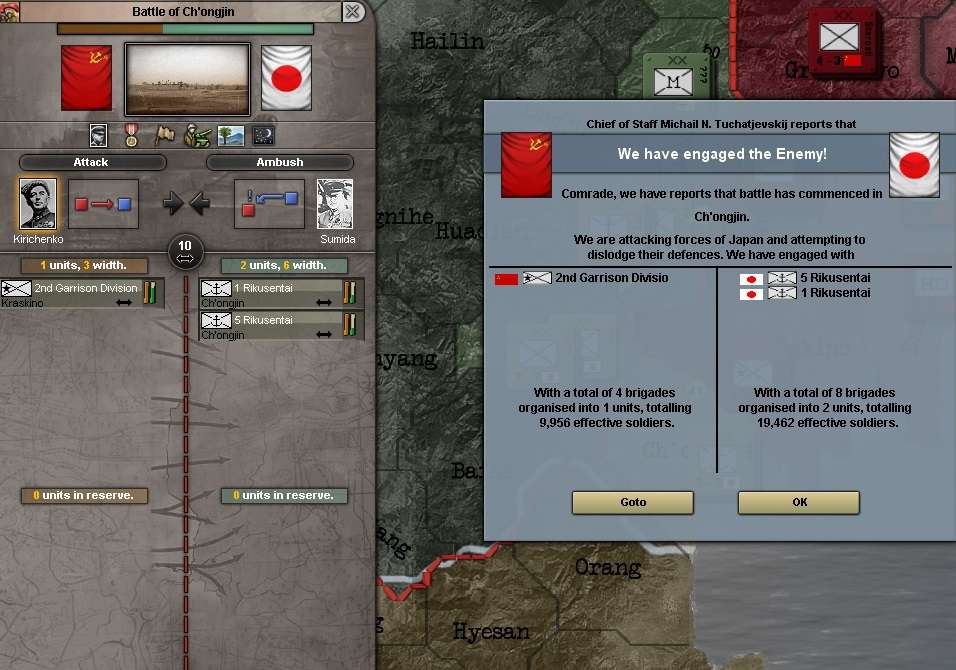
General Kirichenko rose to his feet. He was largely an unknown to many of the men gathered there, as he had spent considerable portions of his service not far from Vladivostok. His appointment to the Second Garrison Division of the 4th Mountain Corps had been a source of pride for his parents and friends. “Comrade Stalin, I make no excuses for my performance. My intelligence was that the enemy was low on supplies. A successful attack on Chongjin would have shortened our front and give us a rare offensive against the Japanese. That the attack failed is my fault and mine alone.”
Stalin nodded with approval. “Comrade General, nobody can fault your decision making. General Sumida is an experienced fighter, and the ambush on 14 January was particularly dastardly. I had actually intended to highlight your bravery and personal initiative; I can take no issue with any man that takes responsibility for his actions.”
Whether Stalin had actually intended anything of the kind seemed doubtful, but Kirichenko was dismissed, so that he could return to his unit. Molotov looked at an agenda in front of him – notably, he and he alone possessed a copy – and called for General Remizov. Remizov had been very busy, one of the busiest single commanders in the past two months, yet his combat record was exemplary. He said nothing as he stood. Stalin seemed to confirm Remizov’s opinion of himself as he began. “You have done excellent work, Comrade General. In fact, one might say you have done more than any other man to seal the Polish pocket. You defeated the elite German Waffen-SS at Allenstein and again at Osterode.”
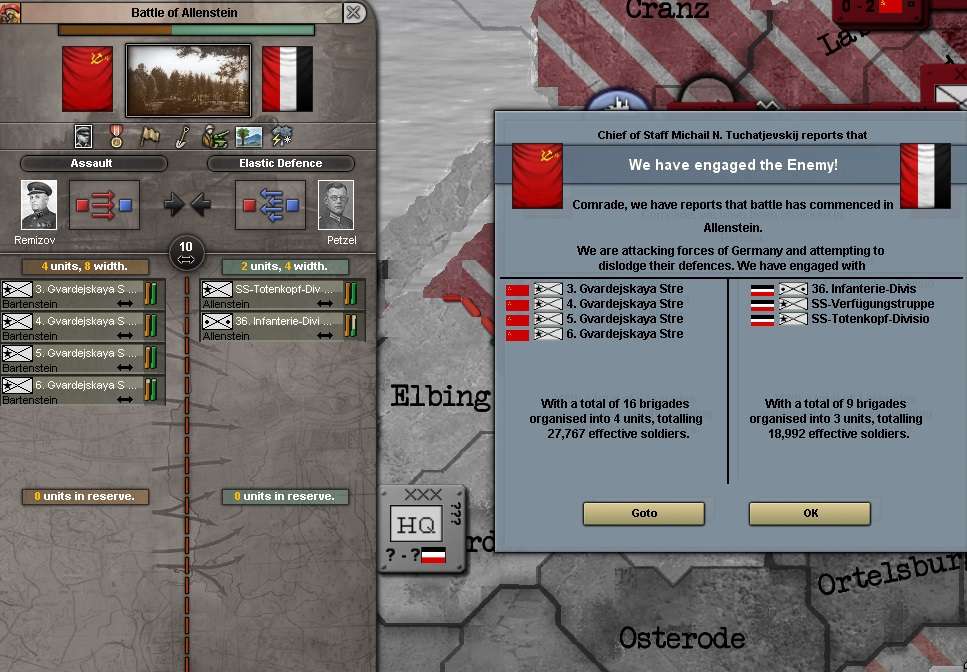
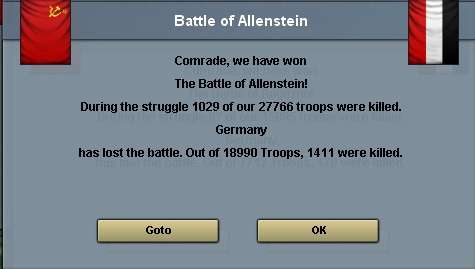
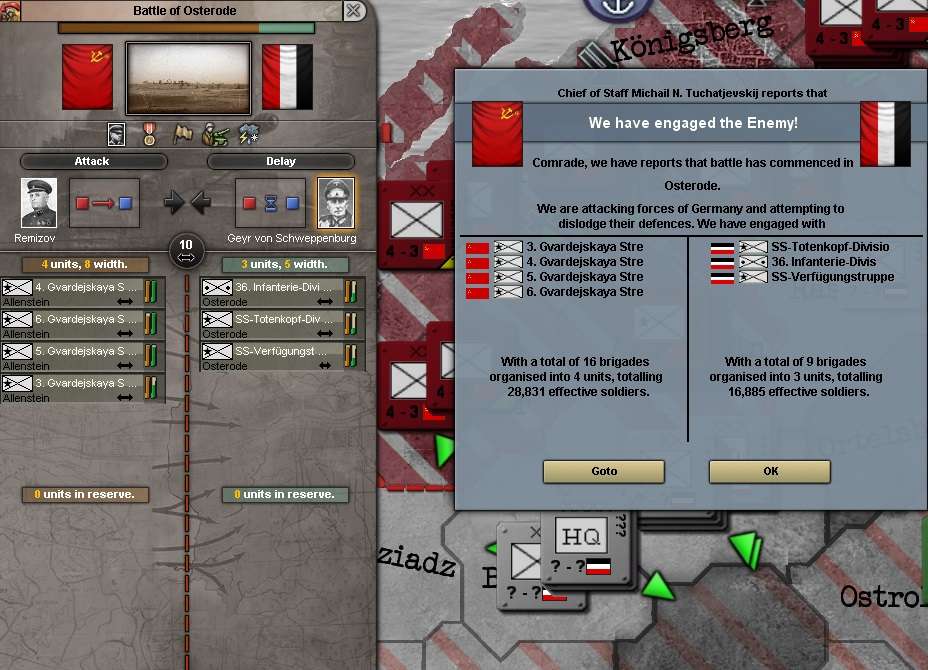
“I serve the Soviet Union, Comrade General Secretary.”
“Of course you do. Yet, and you will forgive my inexperience at modern warfare, I am curious as to the decision you took immediately after Osterode. Could you explain it?”
“Certainly. I received reports that we had nearly closed the Polish pocket. My plan was to use subterfuge to slip three divisions of my corps to Grudziadz. Then, we would attack Torun and seal the pocket, depriving the enemy of the airfield in the process.”
Stalin nodded once again. “A brilliant maneuver. Yet, I might ask, what of your fourth division?”
“What do you mean?”
“You had four guard divisions at your disposal, not three. What was the fourth doing?”
Remizov flushed slightly. “That was my division. We were to hold our position at Osterode, staging demonstrations to prevent the enemy from realizing that our other three divisions were leaving.”
“Ah, I see. How did that turn out for you, Comrade General?”
Remizov now paled.
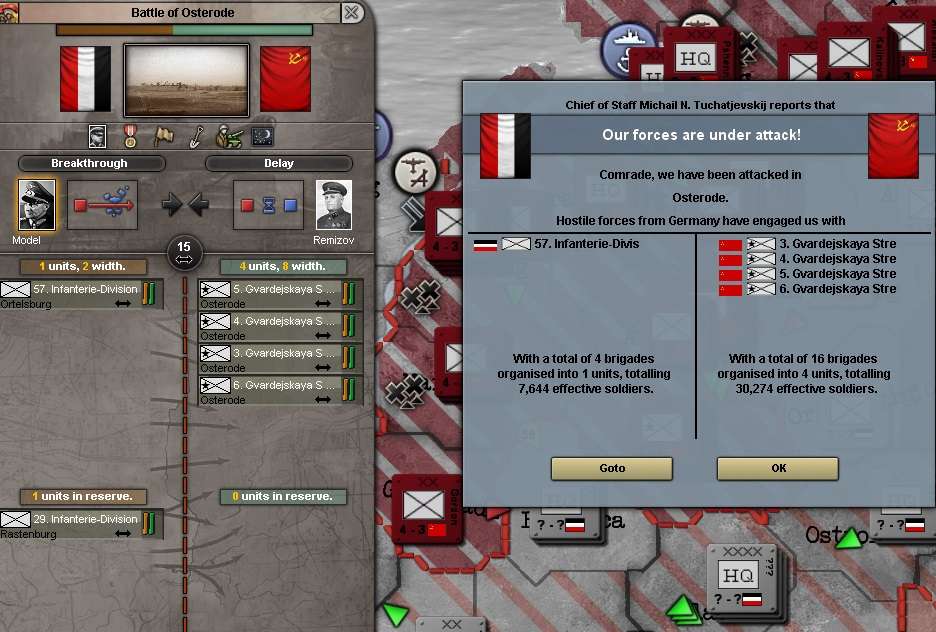
“General Model was not fooled and attacked.”
“With only one division? He is a brave, brave man.”
“He did have a second in support, Comrade General Secretary.”
“My God! Two whole divisions against four Guard divisions?! How could we possibly have foreseen such tactical brilliance?” Stalin now began to flush himself with anger.
“Comrade Stalin, please, understand. If the plan had worked –“
“IT DID NOT WORK, YOU SIMPLETON! Instead of sealing the pocket, you kept it open! You should have simply attacked the enemy and moved one step closer. Torun could have waited. You gambled, Comrade, and while you may have won a small bet, you left a much bigger pot on the table.” [2]
Remizov thought, for one split second, to push back, but immediately thought better of it. “Comrade General Secretary, forgive me. You are absolutely correct. I will submit my letter of resignation at the end of the day.”
Stalin’s mood changed in a heartbeat. “Comrade Remizov, it is permitted to make mistakes, provided one learns from them. You have, as I can tell. No such resignation is necessary. That will be all.”
Everybody relaxed slightly. Two Generals, both responsible for blunders, had not been punished. For the next few minutes, there was nothing to blunder. General Tamruchi was named a Hero of the Soviet Union for being the Commander to capture Berlin.
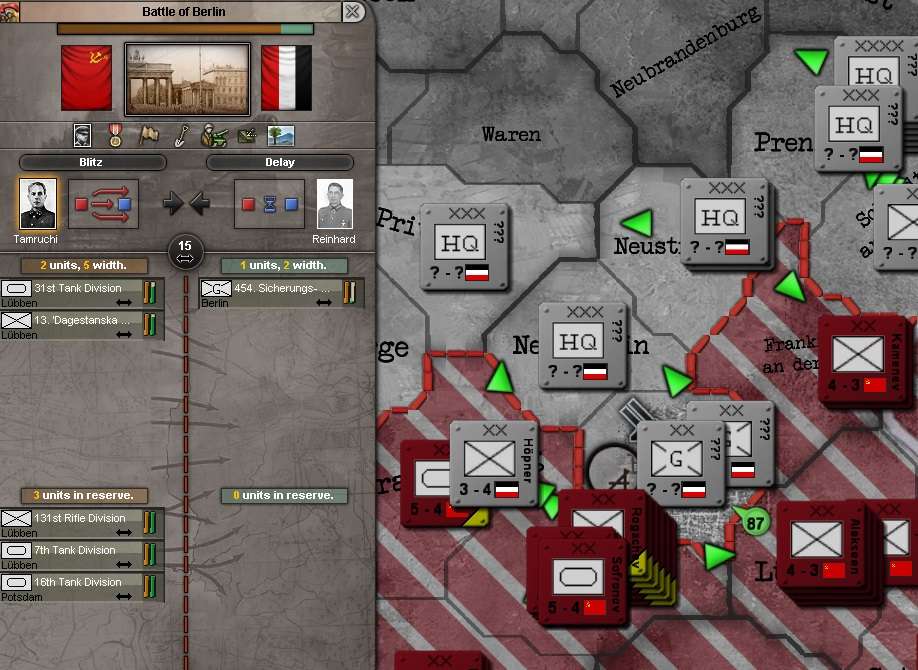
General Levandovski received the prestigious Order of Lenin for his capture of the city of Mildigun – the first successful offensive in the Far East since the beginning of the war with Japan.
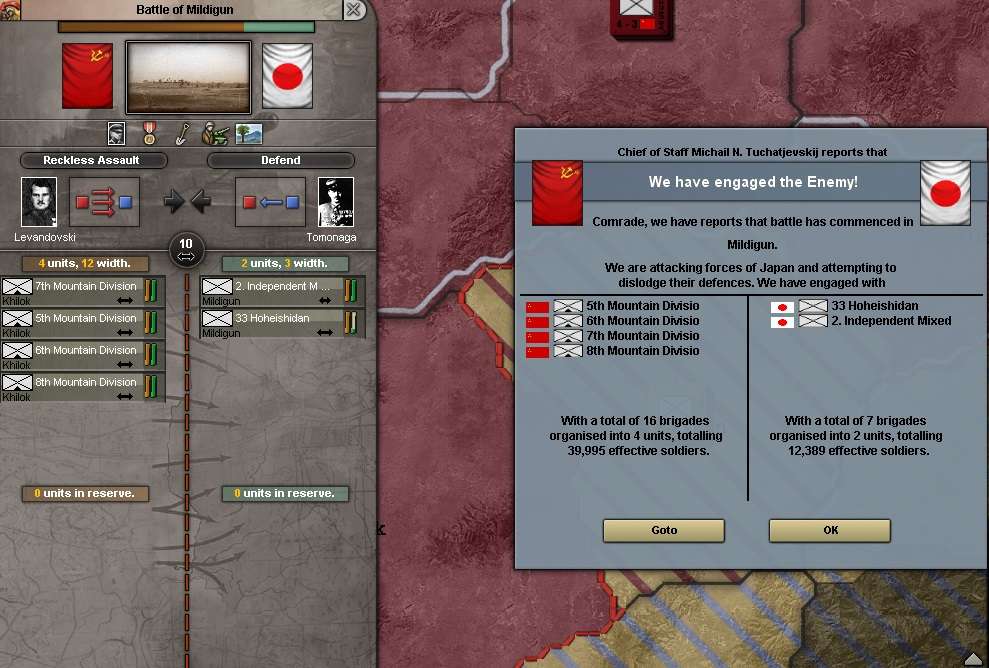
General Novoseltski – who accomplished what Remizov had attempted and captured Torun – similarly received an Order of Lenin. As it happened, the pocket had already been sealed, but Torun was sufficiently significant to merit the award in its own right.
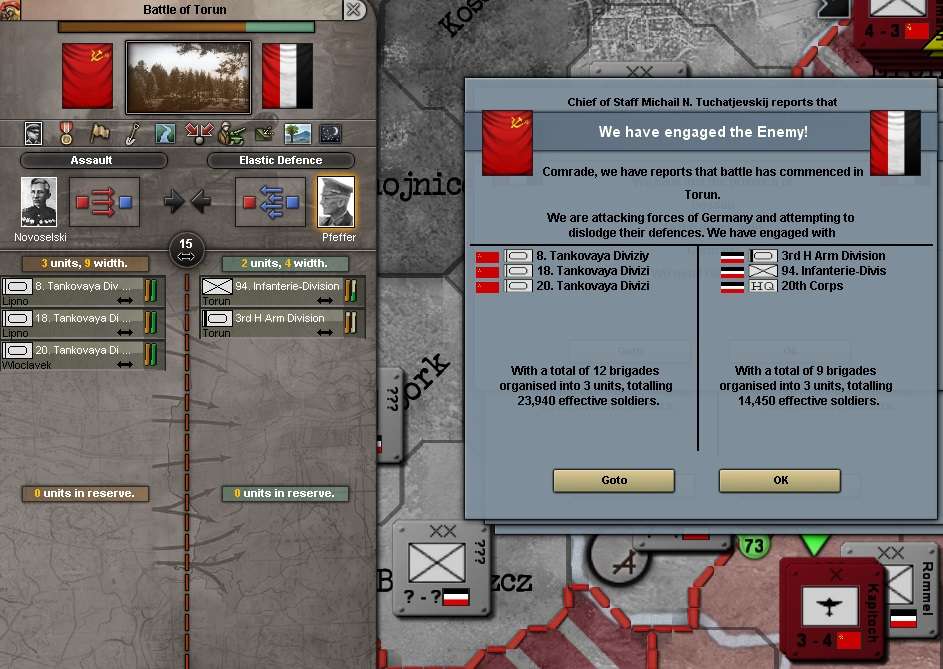
With the closing of the pocket and the capture of Berlin, a few soldiers had hoped that Germany would surrender, yet the German government escaped to Düsseldorf.
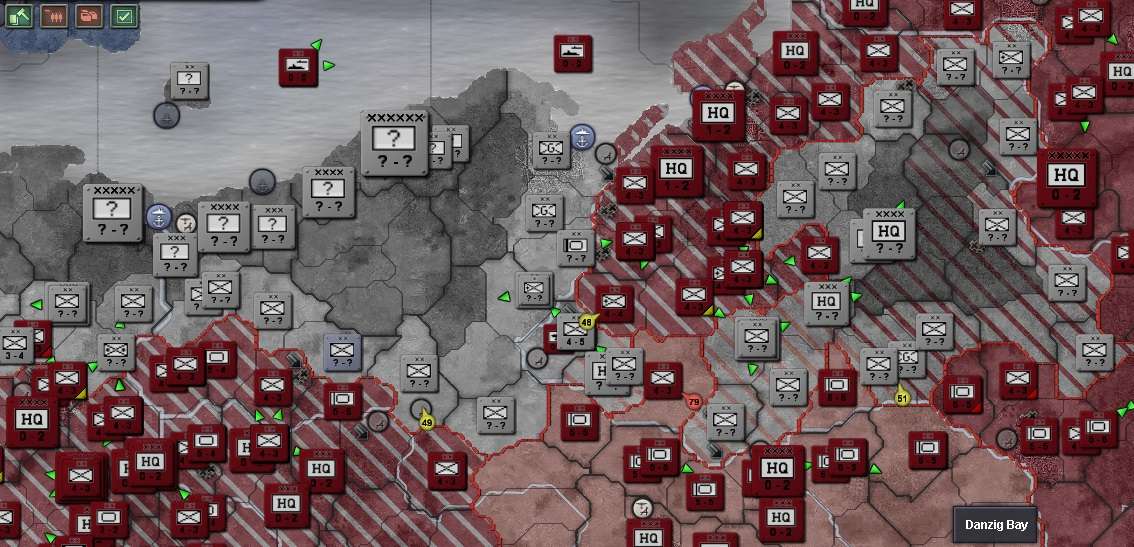
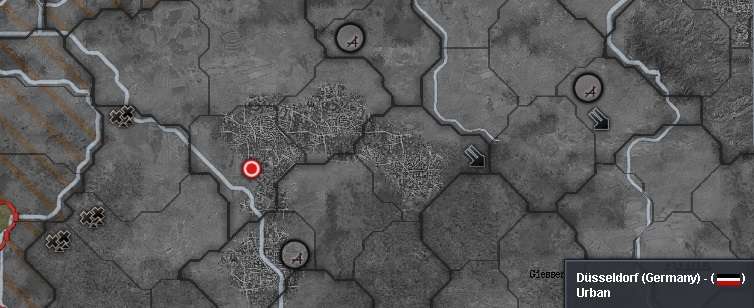
Yet another Finnish uprising was lightly brushed aside.
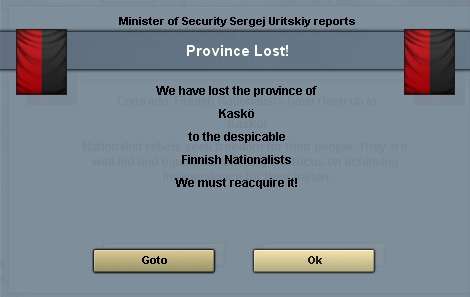
All in all, the overall situation in Europe proved to be very positive. The French Army was close to making its own pocket near their battleground of Verdun, which had proven so troublesome for Germany in the Great War.
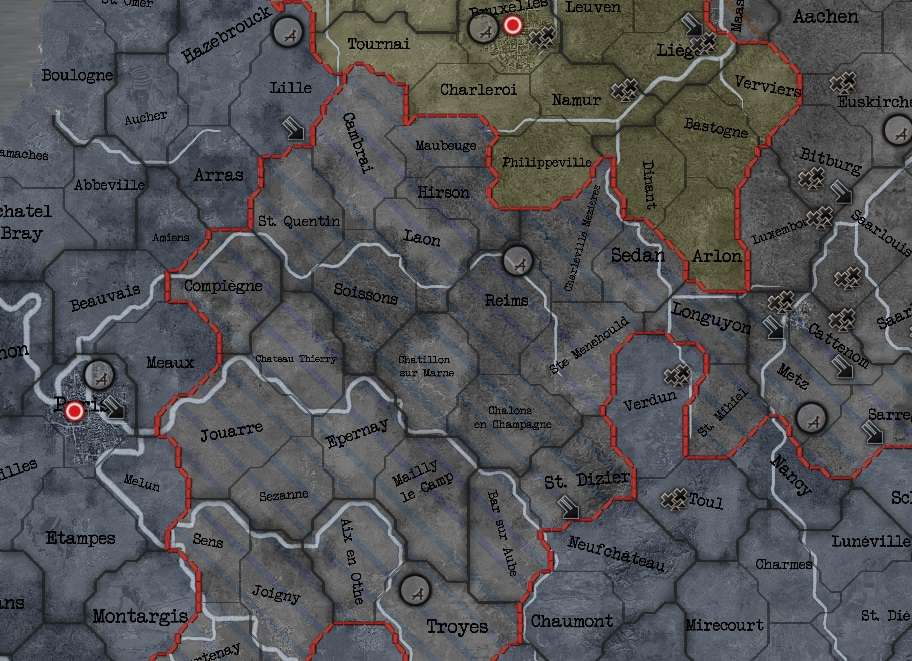
Everybody started shaking hands with one another as they prepared to leave. Stalin cleared his throat. “Oh, one more thing. General Muzich, I had a question – why did your orders to advance on Berlin come so late?” [3]
“I do not know, Comrade Stalin.”
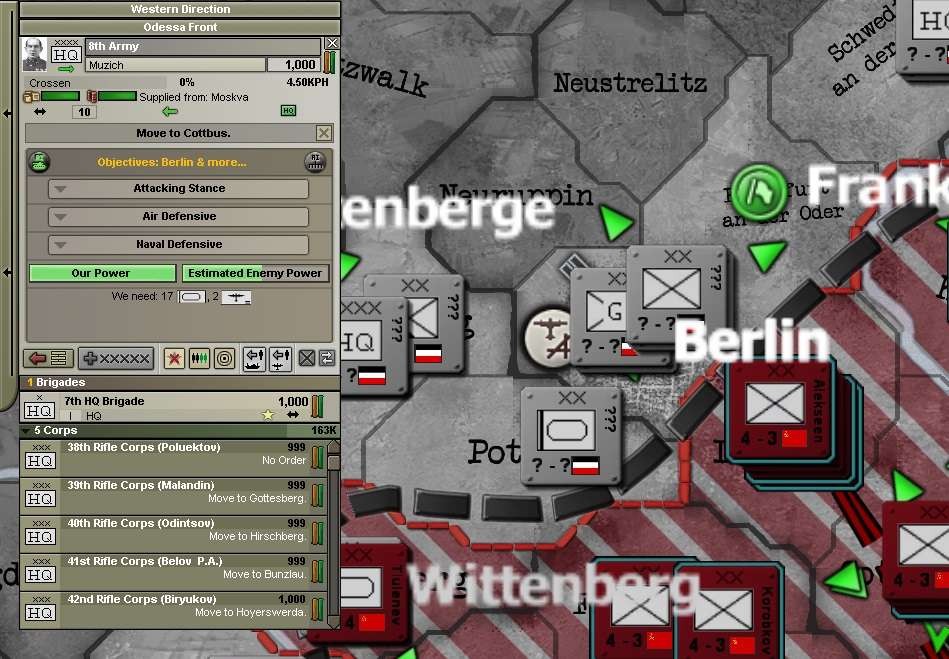
“Curious. I wonder if General Bagramian might know. General?”
The Commander of Second Army had not expected to speak that day, especially not as the session was closing. He shrugged and responded, “I don’t understand, Comrade Stalin. I am not responsible for Eighth Army communications.”
“Quite true, Comrade General, quite true. You are responsible for your own army.”
“Yes, Comrade Stalin.”
“Let us take a look at your assigned areas, shall we?”
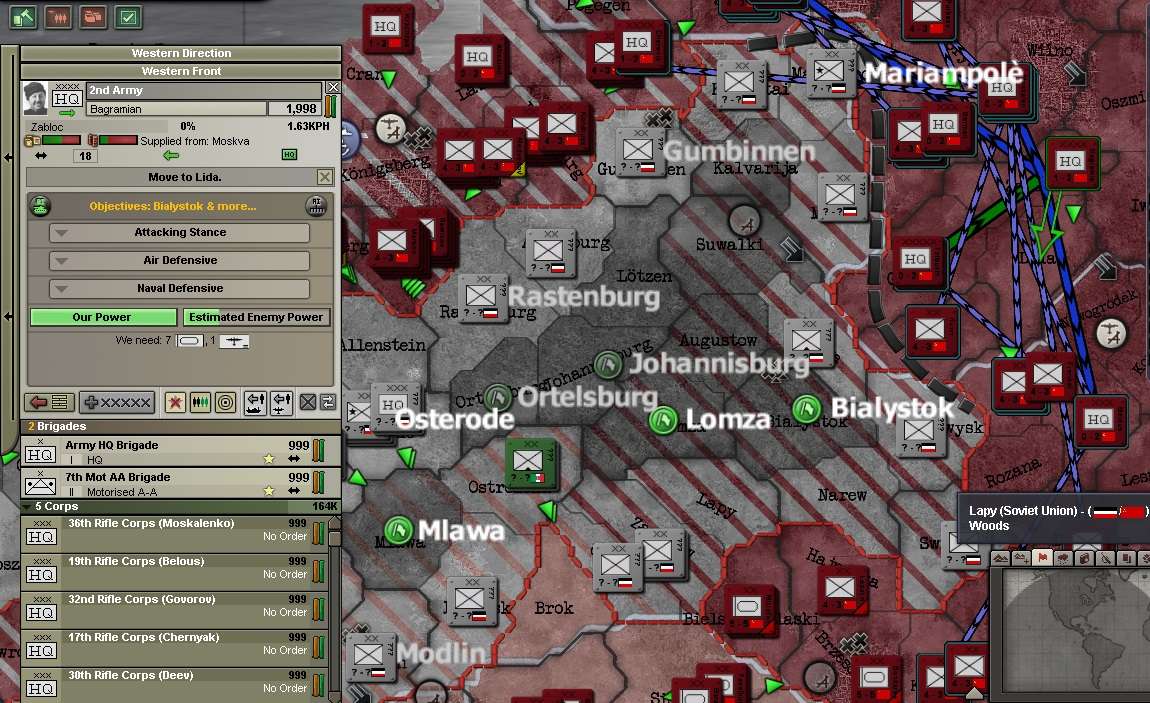
“That is the best map I have, Comrade General Secretary.”
“It shall suffice. Is this an old map?”
“No, it is recent.”
“Wonderful. It is accurate in every detail?”
“I oversaw its drafting myself, Comrade Stalin.” Bagramian had in fact done no such thing, but he knew that taking credit could mean a promotion, so he did not hesitate to lie.
“A conscientious officer indeed. Now, please indicate which of these objectives your army took.”
“I’m sorry?”
“How many of its objectives did Second Army take?”
“Well, Allenstein and Osterode –“
“Were taken by General Remizov. I don’t think it’s quite fair to take credit for that, is it?”
“No, of course not –“
“Then you, in fact, took no objectives?”
“N-no, Comrade Stalin.”
“Ah, but I had forgotten, there was that battle at Mariampole.”
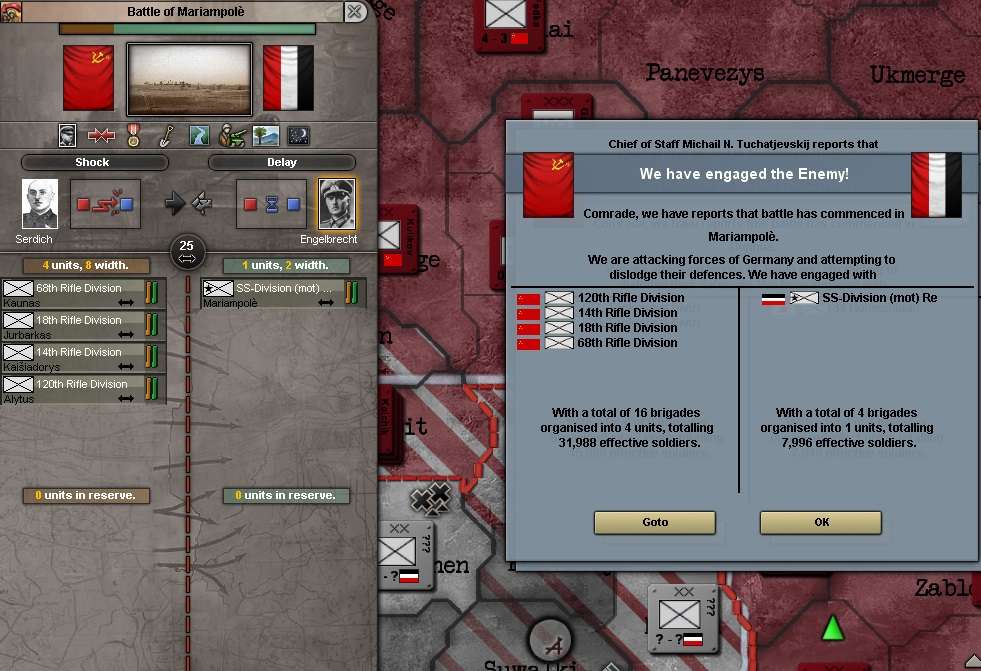
“The SS was th—“
“You know, General Bagramian, your ability to make excuses for your stupidity is only exceeded by your actual stupidity. Your rifle regiments turned and ran despite out numbering their opponents 4 to 1!”
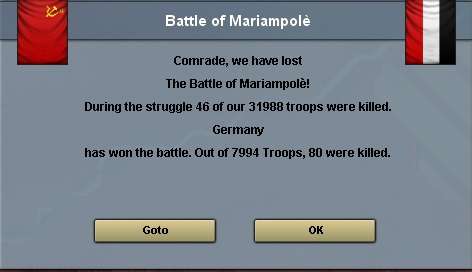
“But—“
“Shut up, Bagramian. Your sniveling sickens me. Alone of all the armies in the Soviet Union, you did not take one objective. You had one HANDED to you, and you messed it up. Frankly, the only question I have left is whether you are simply an incompetent lout or a German spy. Fortunately, that question is not for me to decide. Comrade Rokossovsky?”
The new head of the NKGB smiled coldly. It seemed Second Army would soon have a new General. [4]
[1] Maskirovka. or masquerade, is something the Soviets were incredibly adept at. The level of trickery they could employ to conceal an arms depot is awe-inspiring.
[2] I tried to get too cute here. Actually, not much happened as a result; it really made no difference in the grand scheme of things. I actually could have taken all four divisions – even if the Germans had advanced, they would have gained nothing.
[3] Davout’s original plan did not have Eighth Army’s objective as Berlin, but when there are 10 divisions right next to Berlin just glaring at it… I had to do it.
[4] I have honestly no idea why Second Army did nothing. It makes even less sense that they lost the battle they did. Still, gives us a chance to make a replacement for replacement’s sake!
In all reality, we did pretty well in this two month period. I’ve overlooked the Far East here. It’s relatively static; Japan is gobbling up easy provinces for no real purposes, and I’m winning most of the battles, but there’s no easy way to start a proper offensive. The capture of Munich took a few tries, but was eventually successful. Innsbruck fell to our mountain divisions handily; other than that, it too was relatively static. Landhut changed hands at least five or six times that I recall.
Thanks for reading! We get closer to the conclusion every update!
2nd Army has been a mystery this entire war. They did nothing for a long time. Then I switched to Attack posture and they started heading south to Warsaw to attack their objectives from behind, thus allowing the Germans to advance into vacuum. Bagramian got what he deserved.
Although the Guards have been handled a little more roughly than I would have liked.
The next 2 updates should be fairly quick as Germany won't last until the end of April now that the Berlin stockpile has gone. It will then be a race to block of North Italy from the French so we can then overrun the boot which will take about a month. Then the big question of what to do next?
Although the Guards have been handled a little more roughly than I would have liked.
The next 2 updates should be fairly quick as Germany won't last until the end of April now that the Berlin stockpile has gone. It will then be a race to block of North Italy from the French so we can then overrun the boot which will take about a month. Then the big question of what to do next?
I say we puppet them and install a government friendly to the interests of the Party!
Chapter 20: An evening in Dusseldorf
The provisional capital of the German Reich had certainly seen better days. Dusseldorf was chosen, many speculated, because of its distance from the Red Army. The column of T-34s parading down the street might indicate otherwise, however. For two men sitting on a park bench in the city’s center, the sight of the single red star made their hearts swell with pride. Marshals Tukhachevsky and Vatutin shared a moment of silent victory.
The catalyst for the final days of Nazi Germany had been the selection of General Chuikov to command the Second Army. Chuikov was one of the most experienced and hard driving Generals in the entire Red Army, and he demanded and got results. Ever so slowly, his new command began to attack the German pocket. But it was on the very frontier of combat – in southern Germany and northern Italy – where Germany’s fate was ultimately sealed.
A few days apart from one another, the battles of Merona and Padova renewed the pressure on the southern flank of the Germany army.
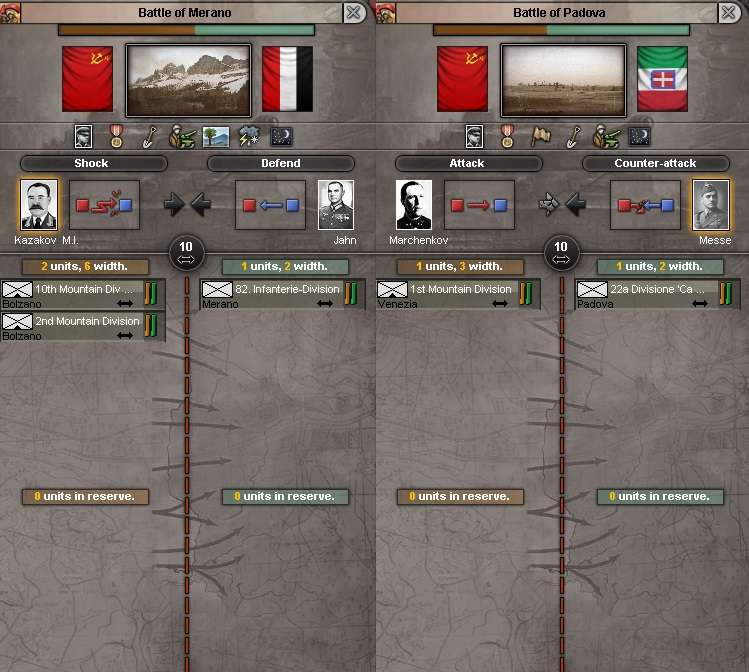
Neither involved large numbers of troops, but they represented the spearhead of the Soviet advance. Fears of France pushing east to prevent Soviet dominance spurred greater and greater efforts from the special forces. The follow up at Chioggia really demonstrated General Marchenkov’s tactical brilliance, as he attacked across the Po River, catching the exhausted defenders of General Messe’s Twenty-Second Infantry by surprise.
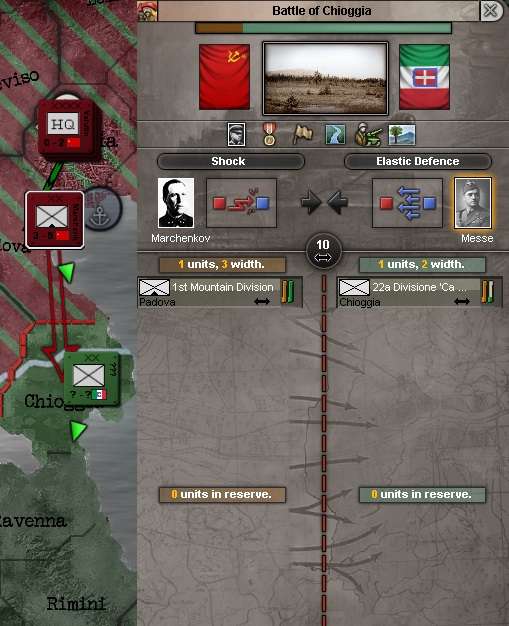
The battle of Khongor, on the other hand, illustrated that some areas were more difficult to fight in than others. An attack by an entire corps of Mountain Troops met with a disastrous defeat, with 2110 casualties for the Soviets vs. only 931 for the Japanese. Yet there was even good news from the Far East; a surprise American attack on the island fortress of Iwo Japan sent ripples through the Japanese high command, and the most dire options to defend the Home Islands were considered and adopted.
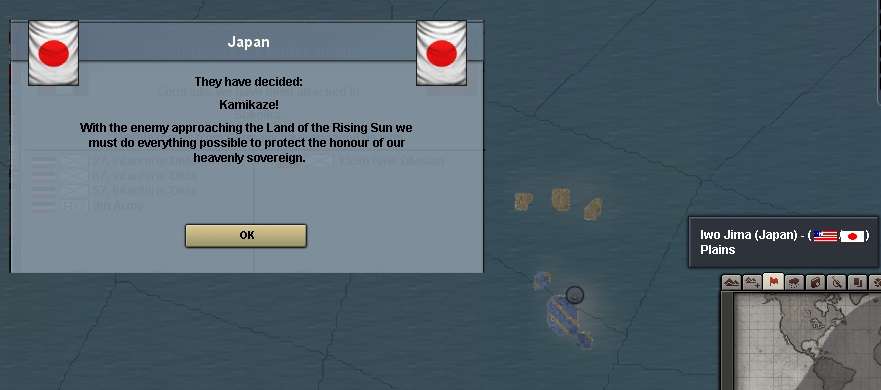
The Battle of Bialystok, fought 18 March 1941, was the first real shift in the pocket. Casualties were minor, but German forces had to retreat again, and they were quickly running out of places to retreat. A day later, M. I. Kazakov, entirely on his own initiative, engaged a concentration of German and Italian troops almost twice his size. With support from other armies, he hoped to seal off almost 50,000 troops and bring an end to war that much quicker.
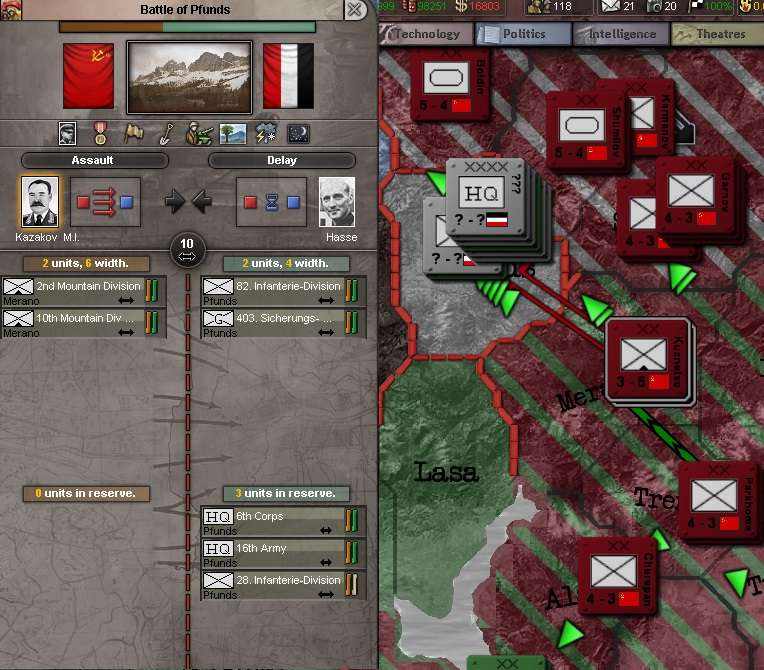
Yet it was the symbolic victory at Mariampole – the German bastion that withstood months of assaults from Chuikov’s predecessor – that ultimately spelled the doom for the German army.
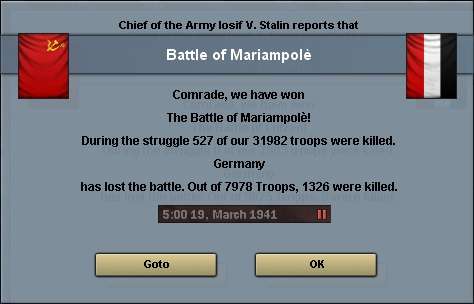
Four provinces remained in the eastern pocket, while other Soviet armies reached the Baltic Sea farther west and created a second pocket. At Pfunds, two more Mountain divisions hurried to reach the battlefield, but Kazakov’s Shock tactics had already driven one enemy division into a holding pattern and several more from the field.

By 22 March, French forces formed a pocket of their own. With only two provinces remaining in the eastern pocket, some bad news made its way back to Moscow in the uprising of some Persian soldiers in the province of Persabad.

30 March 1941 saw the pocket vanish, and all the troops there either surrendered or were killed during the fighting.
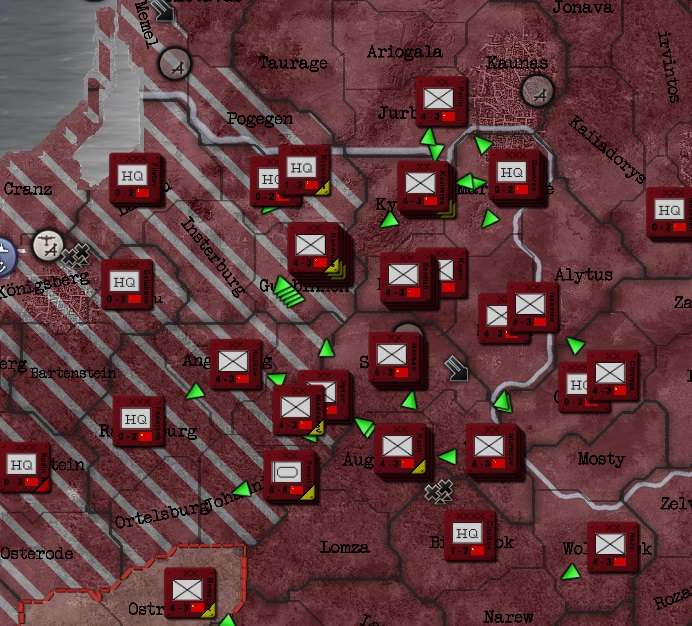
General Chuikov took his Second Army to Berlin, where he was installed as Interim Military Governor and began the hunt for those few Nazis who had not already fled farther west.
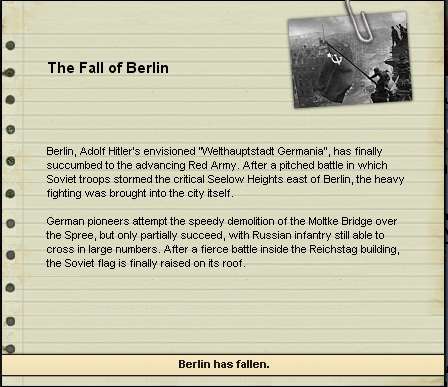
Among those unfortunate enough to be caught in Chuikov’s grip were the Commander of the Luftwaffe, Hermann Goering, and the head of the Gestapo, Heinrich Himmler. Both men, fearing reprisals from the Red Army, attempted suicide multiple times to no avail. They were kept under 24 hour watch. Other individuals, like Heydrich and Eichmann, were shot trying to escape. Yet Goebbels and Hitler remained at large.
The early days of April were best considered in the light of two races. First was the race of the Red Army to Genova, cutting off Italy from French well-meaning but misguided intervention.

Second was the race to capture the last few remaining strongholds of Germany before the French could seize Dusseldorf. Danzig, Hannover, Stuttgart, and Frankfurt am Main all were being besieged and bombarded with urgency; if France could capture Hitler or Goebbels, they might get to dictate terms the Red Army would find distasteful.
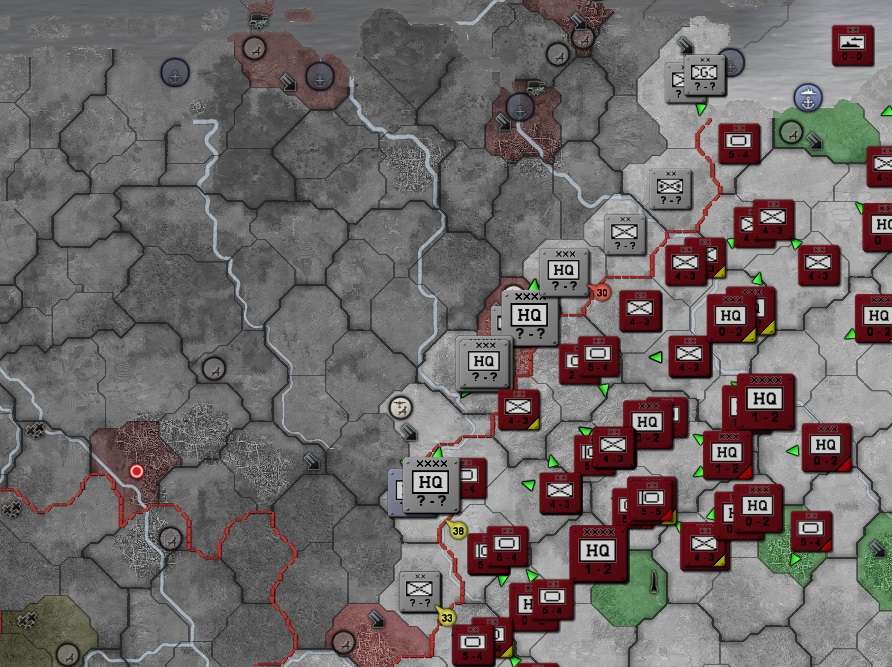
The Stakhanovites back in the Soviet Union did their part, and April 1941 was a banner month for production of all kinds.
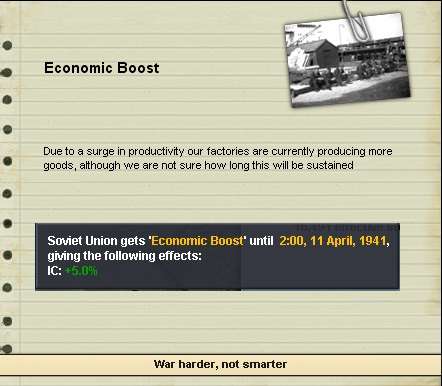
12 April 1941 was a day of celebration throughout the world, as the fortress of Danzig, that tiny city where it all began, surrendered to the Red Army, forcing the Germans to accept the inevitable.

The leader of the Communist Party of Germany, Ernst Thalmann, was placed at the head of the German Government alongside Ludwig Renn, a popular writer. Thalmann’s release from prison was very moving, and his first speech in favor of “comradely fellowship with the peace-loving peoples of the Soviet Union and her allies” was reprinted eleven times in April 1941 alone. Stalin himself received the first edition, with the thanks of a grateful Thalmann. The new German Soviet Federative Socialist Republic was mighty indeed, and immediately mobilized the peasants and workers of Germany to fight against the remaining members of the Axis.
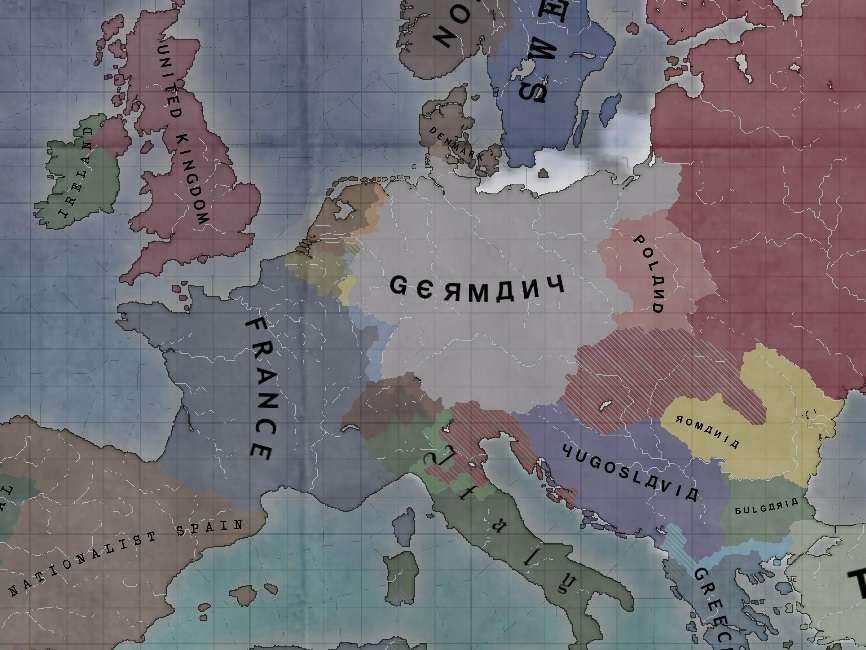
While two armies took rail to hurry to the Eastern Front, Second Army was kept in Cologne as an army of observation, while Seventh Army reinforced at Stuttgart. The remainder sought to capture the so-called “Italian Rectangle” of Rome, Naples, Taranto, and Pescara. By 1 May, they had made significant progress.
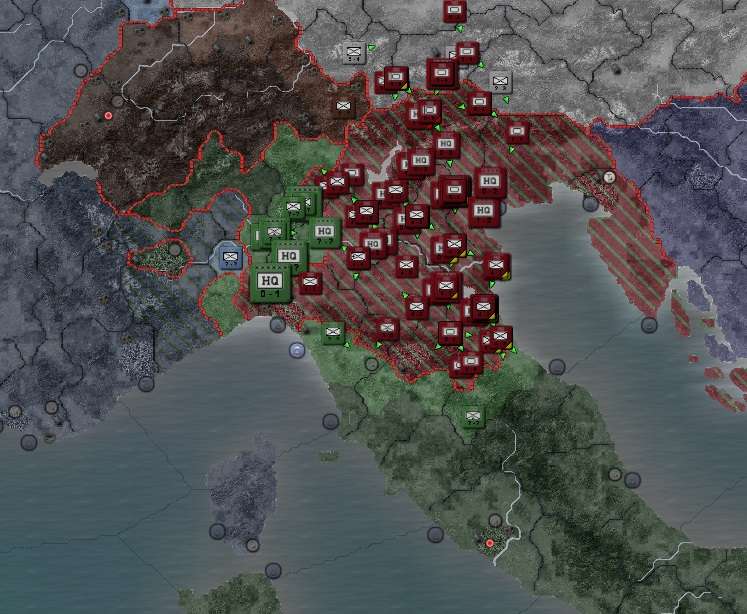
The Far East had seen some slight progress as well. The Americans had done nothing further after capturing Iwo Jima, but the Red Army had made some limited encroachments in Manchukuo and reclaimed some of the areas taken by the Japanese in the past few months.
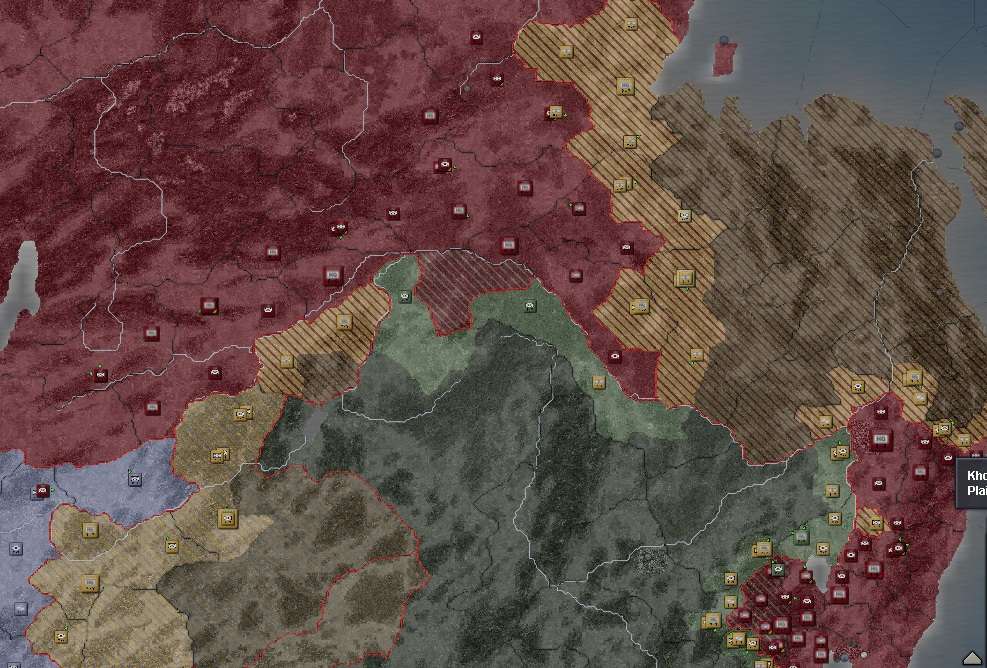
One glaring problem remained: where had Hitler and Goebbels gotten to?
I didn’t write as much about the Far East because it was largely the Mountain Divisions hitting a brick wall. The weather was particularly brutal in Mongolia and Manchuria. Most of my energy was focused on the Italian front; most of what you see in the Italy picture was actually done by the Guards divisions, who were the first to reach Genoa, and only later were the other parts of Lombardy filled in by the rest of the Red Army.
Thanks for reading!
The German Campaign took 30 weeks (208 days) against the bulk of the Wehrmacht as the Germans moved troops out of France firstly in response to our build up on the border and then a second wave once the Red Army crashed through Hungary. Following to the famous dictum, the campaign was won before the battle was fought with the prepositioning in Romania and Yugoslavia.
Still, it was fascinating to watch it play out very much like Tukhachevsky's Deep Operations scheme, with the Rifle Divisions only able to hold the German divisions, but that allowed the Mechanized Corps to then push through gaps to threaten encirclements which then forced the enemy divisions to pull back. The exception of the pocket in Eastern Poland proved the rule as there were no Shock Armies deployed in that zone so the Germans were comfortable holding on until the pocket started closing from Konigsberg and they started rushing reinforcements to the region rather than retreat. It was also noticeable that the advance in the centre slowed in December/January as the 1st & 2nd Shock Armies were spread too thin and did not have an ordinary army free to hold the line. The push on Berlin gained momentum when the 6th and 8th Armies became free to help 2nd Shock, and the French push into Southern Germany had the effect of drawing units away that freed up 1st Shock.
The VVS fight was also interesting as the Soviets tended to be on the losing side in most battles but as airfields were overrun and the Luftwaffe had to rebase, the VVS slowly gained parity and then slight supremacy.
Italy won't take long as they were being pushed back even when the 5th Army was told to be defensive and the 2 Mountain Corps did local probes. They relied heavily on German divisions to stiffen the defence in the Alps and Northern Italy which is another reason why there were not enough divisions in central Germany to hold back the Shock Army attacks.
Still, it was fascinating to watch it play out very much like Tukhachevsky's Deep Operations scheme, with the Rifle Divisions only able to hold the German divisions, but that allowed the Mechanized Corps to then push through gaps to threaten encirclements which then forced the enemy divisions to pull back. The exception of the pocket in Eastern Poland proved the rule as there were no Shock Armies deployed in that zone so the Germans were comfortable holding on until the pocket started closing from Konigsberg and they started rushing reinforcements to the region rather than retreat. It was also noticeable that the advance in the centre slowed in December/January as the 1st & 2nd Shock Armies were spread too thin and did not have an ordinary army free to hold the line. The push on Berlin gained momentum when the 6th and 8th Armies became free to help 2nd Shock, and the French push into Southern Germany had the effect of drawing units away that freed up 1st Shock.
The VVS fight was also interesting as the Soviets tended to be on the losing side in most battles but as airfields were overrun and the Luftwaffe had to rebase, the VVS slowly gained parity and then slight supremacy.
Italy won't take long as they were being pushed back even when the 5th Army was told to be defensive and the 2 Mountain Corps did local probes. They relied heavily on German divisions to stiffen the defence in the Alps and Northern Italy which is another reason why there were not enough divisions in central Germany to hold back the Shock Army attacks.
The SOV admittedly didn't put much of a fight, despite the extremely heavy investment in research.
The SOV admittedly didn't put much of a fight, despite the extremely heavy investment in research.
??? The SOV won, so I'm not sure where the "didn't but up much of a fight" part comes in.
I don't know what it was like in Avindian's playthrough but in my planning tests, the VVS (the Soviet Air Force) always performed creditably. At the start the Luftwaffe had the edge on numbers and I suspect quality but the VVS were not useless and after about 4 months they were actually winning some air battles. The VVS certainly outclasses the Japanese air force as they put a stop to the bombing around Vladivostok as soon as an interceptor group was based there. The deployment of the next round of aircraft there should have a big impact on the drive into Manchuria.
I don't know what it was like in Avindian's playthrough but in my planning tests, the VVS (the Soviet Air Force) always performed creditably. At the start the Luftwaffe had the edge on numbers and I suspect quality but the VVS were not useless and after about 4 months they were actually winning some air battles. The VVS certainly outclasses the Japanese air force as they put a stop to the bombing around Vladivostok as soon as an interceptor group was based there. The deployment of the next round of aircraft there should have a big impact on the drive into Manchuria.
I was monitoring air battles until it became too much to handle; the problem wasn't air battles but not enough interceptors, I'm thinking, as we got bombed A LOT around the German pocket (and to a lesser extent around Italy). It's part of the reason the pocket took so long to close.
Chapter 21: A holiday in Rome
1 July 1941, Rome, Federal Socialist Republic of Italy
Anastasia Petrova and Feodor Sokolov watched little Stas playing in the fountains of St. Peter’s Square. Unlike an ordinary summer day in Rome, there were no crowds and crowds of people; there were a dozen or so government officials scurrying about and about a hundred men in various Soviet uniforms. Then again, this was not an ordinary summer day in Rome. At the beginning of May, Stalin had promised the Politburo that they would meet in July, not in Moscow, but in Rome, as a reward for their hard work and dedication to the defeat of the enemies of progress and enlightenment. This announcement delighted the members of the Politburo, to be sure, as many of them had not left Moscow since the war began. Yet there was also a slight sense of incredulity: could peace finally return to Europe?
While other members of the Politburo walked around the Vatican, gaping like the tourists they were, Marshal Vatutin was seated in a cool, dark office not far from the city center. His train left for La Spezia in just a few hours, and he needed to make sure everything was prepared. Marshal Tukhachevsky – formally not a part of the Politburo – did his planning in Moscow. The war in Europe might be over, but the war in Asia still raged on. Of course, the war in Europe was not truly over, in reality, because he –
“Comrade Vatutin?” Georgii Malenkov entered the office.
“Comrade Malenkov! May I help you?” Vatutin and Malenkov were friendly, but not very close, so the Marshal knew that something important was on his mind.
Malenkov took the proffered seat and stared for a moment. “Can I ask you something, Nikolai Feodorovich?”
“Please do, Georgii Maximillianovich.”
“How well do you know Koba?”
It took Vatutin a moment to figure out about whom Malenkov was talking. “The General Secretary? I have worked with him for years, but I would think you are far closer to him than I, Comrade Malenkov.”
“Perhaps. Yet, I do not entirely understand the General Secretary’s actions of a few days ago.”
Vatutin nodded hesitantly. “Yes, I think I understand you.”
“It seemed so odd of him to agree.”
“Well, perhaps we should carefully examine the situation. It is not like Comrade Stalin to do things for no reason.”
The events leading up to 1 July were straightforward enough. The first major offensive in May was not in Italy, but in the Far East. Garbun Dzagal received the attention of the Fourth Mountain Corps yet again.
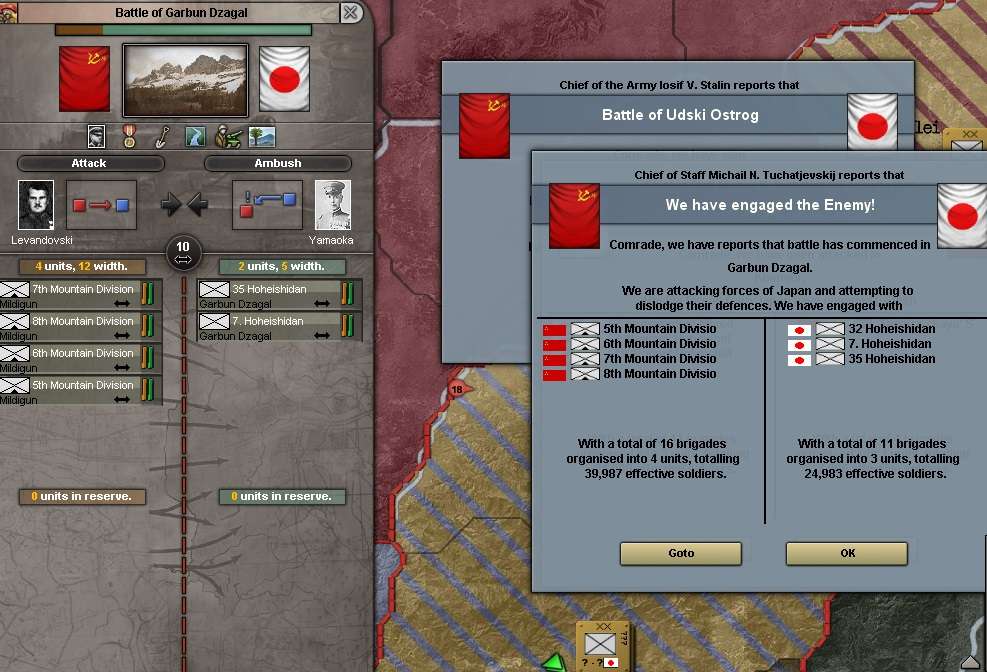
Manchukuo and her overlord, Japan, had put up a considerable struggle, and any sort of victory would help relieve the pressure on the beleaguered area around Vladivostok. The first attack in Italy, on the other hand, was an international offensive, which saw a Soviet General – General Dobroserdov – command two Soviet Rifle Divisions and a French Tank Divisions against two Italian divisions in Milan.
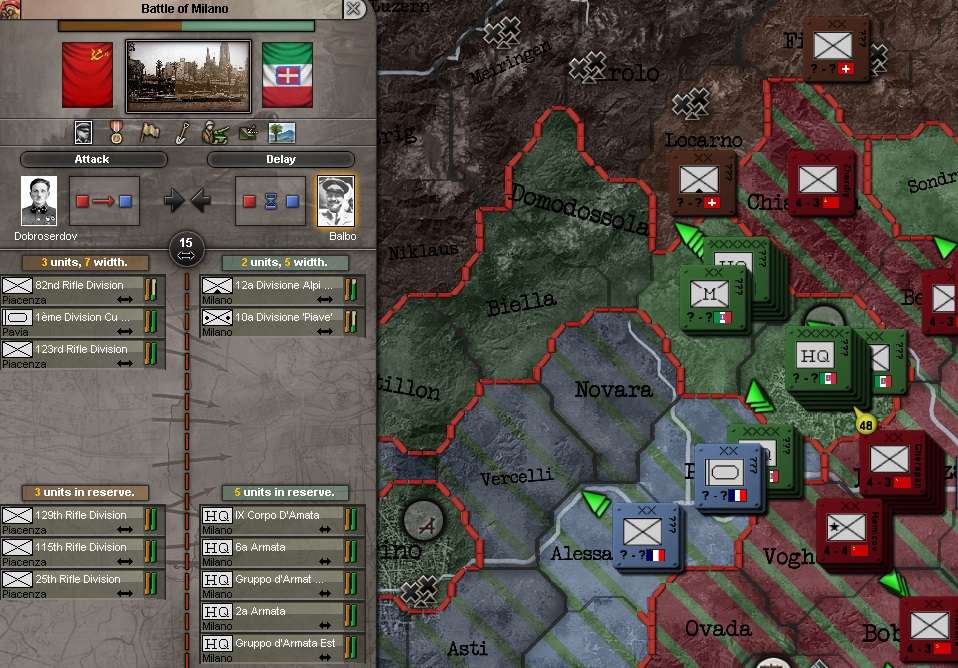
The victory there was a bloody one – 3000 dead, slightly more of them Soviet – but an important one. Most importantly of all, the Hammer and Sickle flew over Milan, not the tricolor. The fall of Milan triggered a massive rush of the entire Odessa Front down the Italian peninsula.
Attention shifted back to the Far East, with the 14 May attack on Khabarovsk. Khabarovsk was intended to be the staging area for a major offensive into Manchuria, until the Japanese attack from Sakhalin effectively cut supplies off to the area. This most recent attack represented the heaviest commitment of Japanese and Manchukuo troops into the key rail hub.
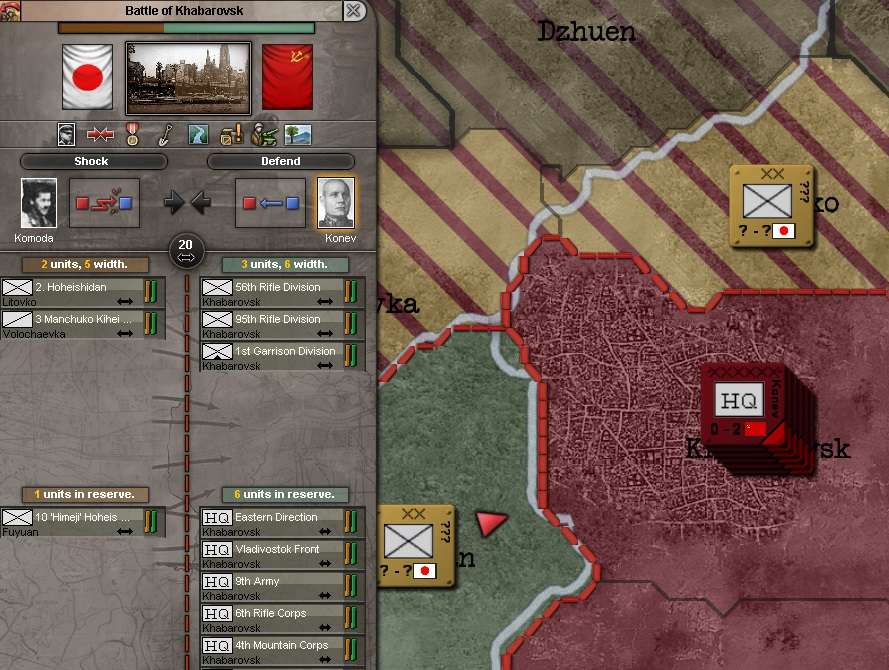
At Garbun Dzagal, to the west, one mountain division had already retreated, but the Japanese rifle divisions continued to take punishment. It was a test of wills, to see who could withstand the devastation of modern war.
Italy was, comparatively speaking, a brisk stroll. Pausing only to call Comrade Petrova about rumors he’d heard of the Swedish ambassador’s latest visit to Berlin, Vatutin planned two nearly simultaneous offensive; one on Pescara, and the other on the Italian capital, Rome.
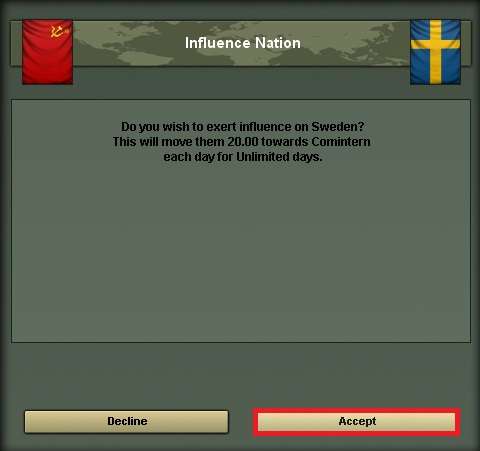
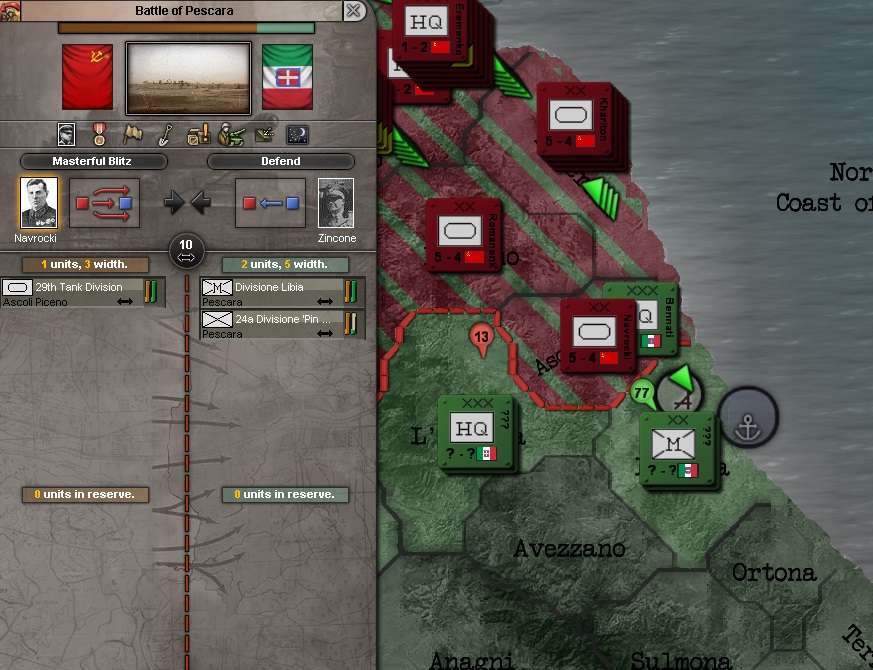
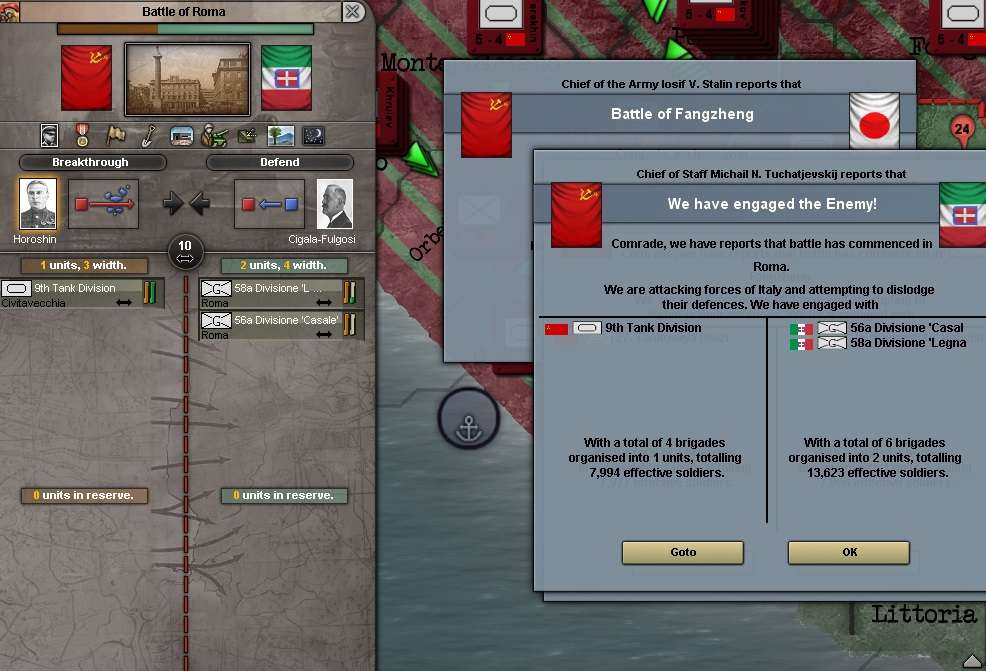
Rome was surprisingly poorly defended – the elimination of the Italian forces in the Milan pocket by Soviet and French forces seemed to seriously weaken their morale – and King Vittorio Emmanuele offered to surrender his country on 18 May rather than put his people through the trial of a long a war. Foreign Minister Petrova, who was already present in Italy on the direction of Stalin, was prepared to open negotiations. Yet Stalin himself merely smiled at the King, and said, “Vitka, you are not the real power in Italy. That power fled to Naples three days ago. But, I will accept your surrender of the city.” [1]
Petrova was speechless. She knew as well as anybody that Mussolini was not in Rome, but for him to openly deride and mock a Head of State, even a capitalist lackey like Vittorio Emmanuele, offended her sense of decorum and diplomacy. She brought the details of this meeting to her husband, who had already joined her in the Eternal City. He promised to look into the matter as soon as he could get a moment alone with Stalin.
Such moments were hard to come by, however. The news on the Eastern Front was encouraging, but extremely bloody. Even when the Soviets won battles, they lost twice the casualties of their opponents.
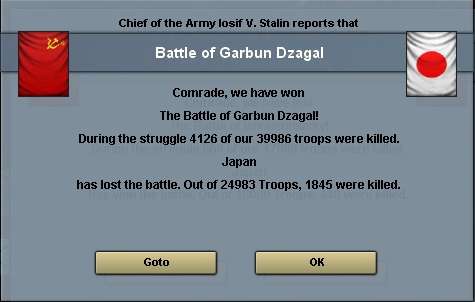
The Roman victory hardly even qualified as a proper battle in comparison.
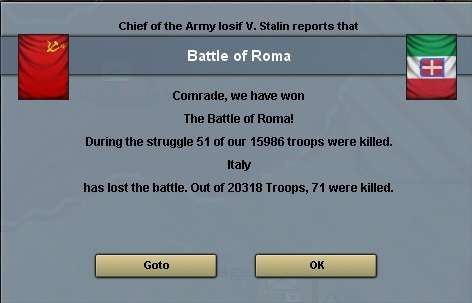
Khabarovsk – a much needed win, that gave the Soviets breathing space – inflicted 20 times the casualties of Rome.
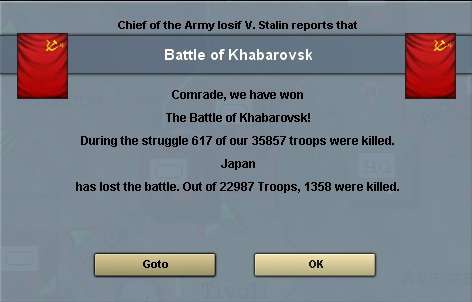
A Japanese counterattack on Garbun Dzagal threatened to reclaim the province, but before the victorious Japanese could arrive, the two mountain divisions which had broken off early returned to the fight and drove them back.
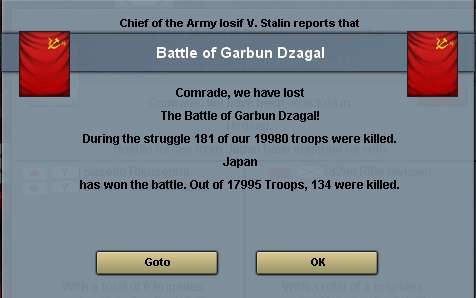
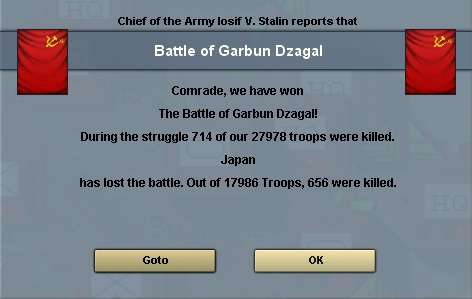
A few days had passed – it was the end of May – and Petrova had not heard anything else about the matter with the Italian King. Sokolov had gone back to Berlin to coordinate the search for the few remaining Nazis who had not already faced socialist justice. Petrova herself was deputized into assisting with the coordination of a French offensive in southern China until Vatutin arrived on 1 June. The offensive was meager, but a welcome diversion that might allow further Soviet gains in the Far East.
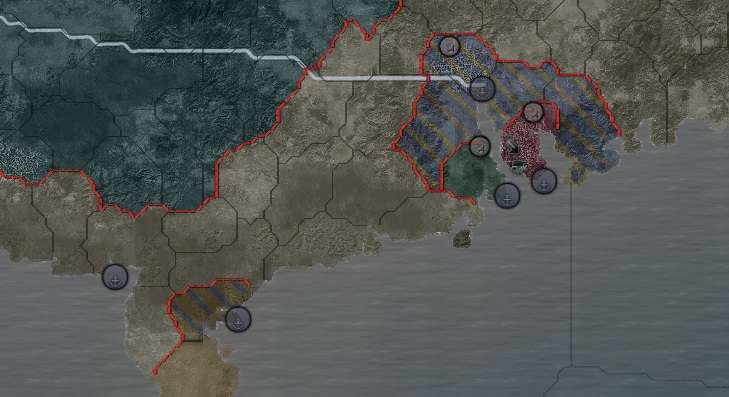
The death of Kaiser Wilhelm II prompted another strange remark from Stalin: “So, he outlived the Second and the Third Reich. But the Reich is not yet dead, is it?”
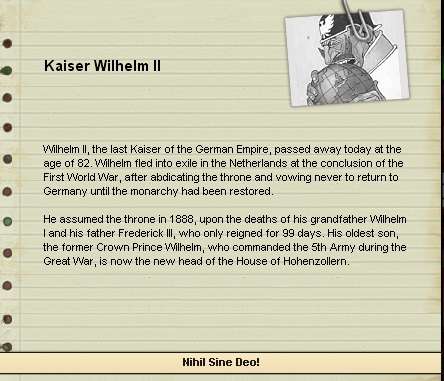
The day before, the final drive on Naples began; Petrova knew that if Naples fell, Mussolini would have nowhere to hide.
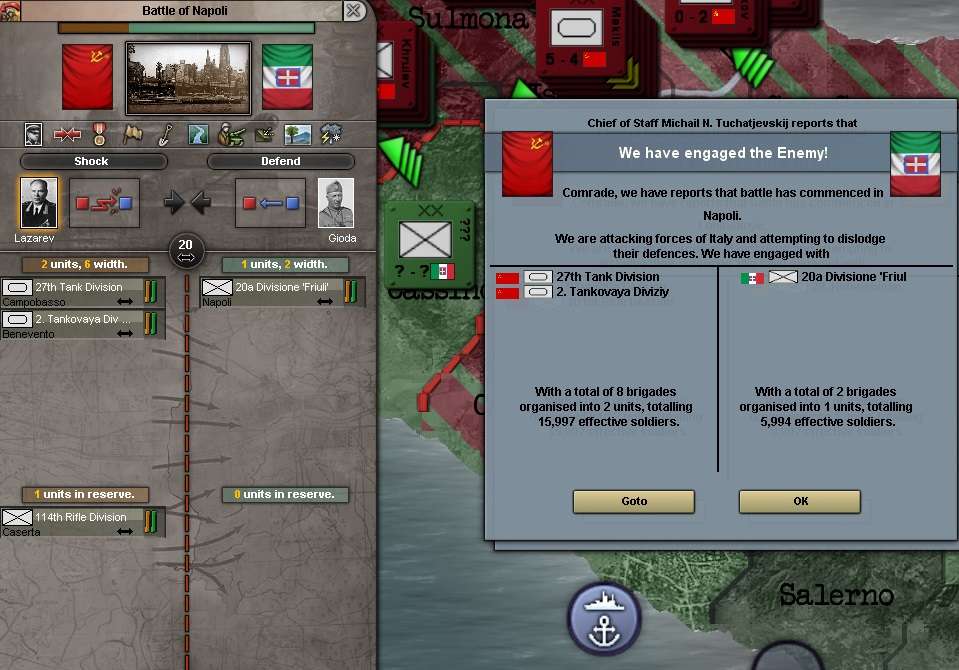
The first attack on the city failed, but only because an overly eager division general had tried to seize the city. A second tank division joined the first, and the battle was truly joined. The Special Forces of Vatutin, which had been relatively quiet, began what they called a “Milan in Miniature” designed to seal off and capture three Italian divisions.
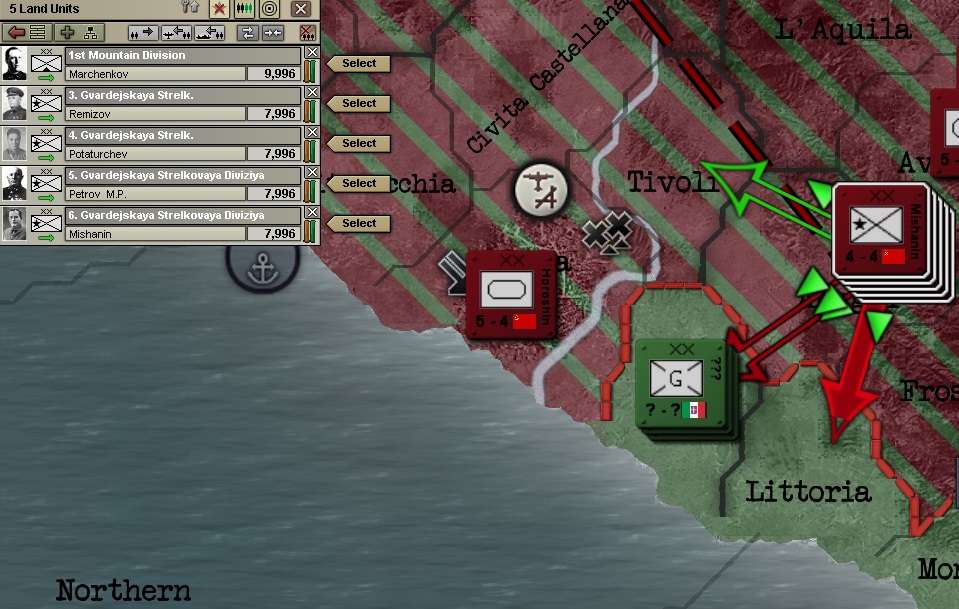
The battle at Anzio did not quite succeed – the Italian general Bergonzoli recognized the trap and quickly withdrew, hoping to reach the province of Littoria before the Soviets did and dig in. Still, 741 Italian casualties (to the Soviet 164) were an adequate compensation. On 10 June 1941, as the Red Army occupied Naples, Benito Mussolini was captured along with most of his cronies. Italy surrendered.
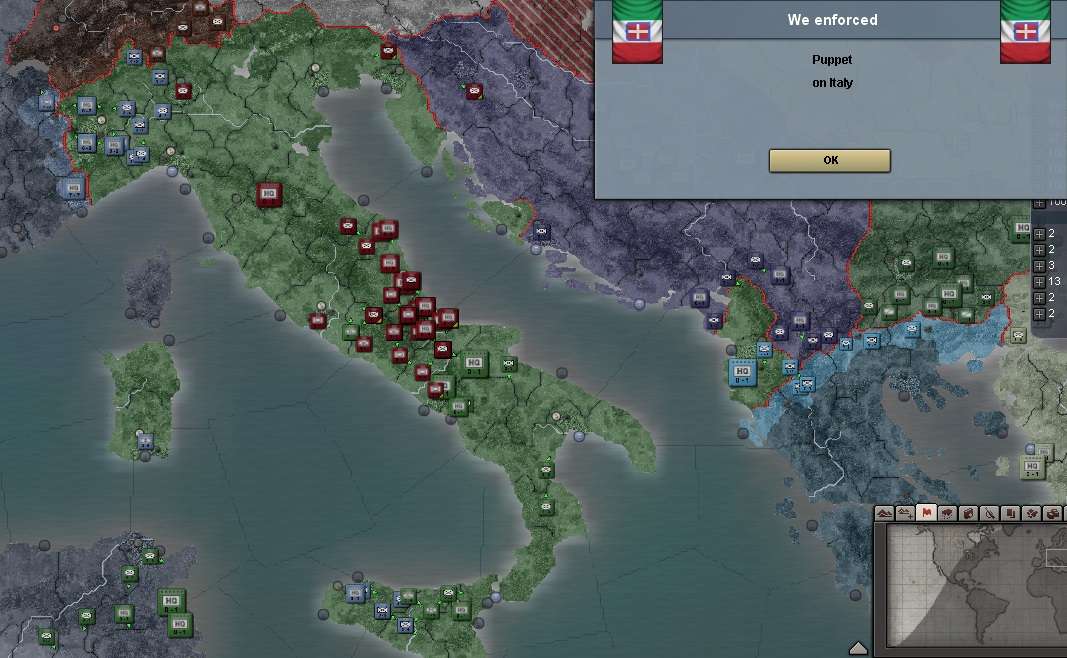
By 10 June, most of the Politburo had arrived in Rome. Malenkov was invited to sit in on the first meeting with Mussolini and Stalin.
Stalin opened the discussion with a warm (and, for Mussolini, very confusing) embrace. “Comrade Mussolini! A pleasure to meet you. Your father, as well as your namesake, were heroes to the cause of world socialism.” Mussolini said nothing, but seethed. “Come now, Comrade, you do not forget your days as a socialist so quickly, do you?”
“Would that I could, you ignorant country yokel.”
“Ah! So the Carnival Caesar has life yet? Good! I have use for you.” [2]
“I would never help you, you rude peasant!”
Stalin’s jovial demeanor changed in a heartbeat as the translator spoke the word ‘rude.’ [3] “Listen very closely. One man has ever used that word with me. You are not fit to even speak his name, class traitor.” Stalin looked at Malenkov. “Please leave the room, Comrade. I will speak with you tomorrow.”
Malenkov had never seen Stalin so furious, and quickly stepped out of the room. A few hours later, Mussolini was addressing the Italian Chamber of Deputies, praising the name of Stalin and Communism.
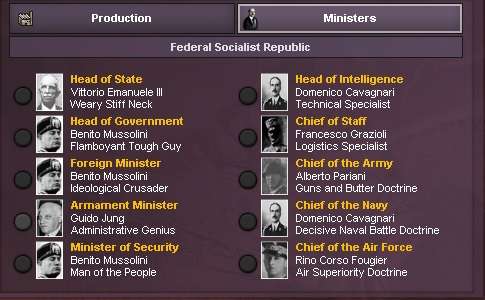
A few weeks later, Stalin rose and made a toast to World Socialism. He took a moment to praise the courage of General Popov – who had ironically been criticized by Voroshilov for a lack of courage – who had taken his mountain division into Ergun alone, so that Garbun Dzagal would be well defended. He not only seized the province, but prepared to defend it against four times his numbers, regardless of the cost.

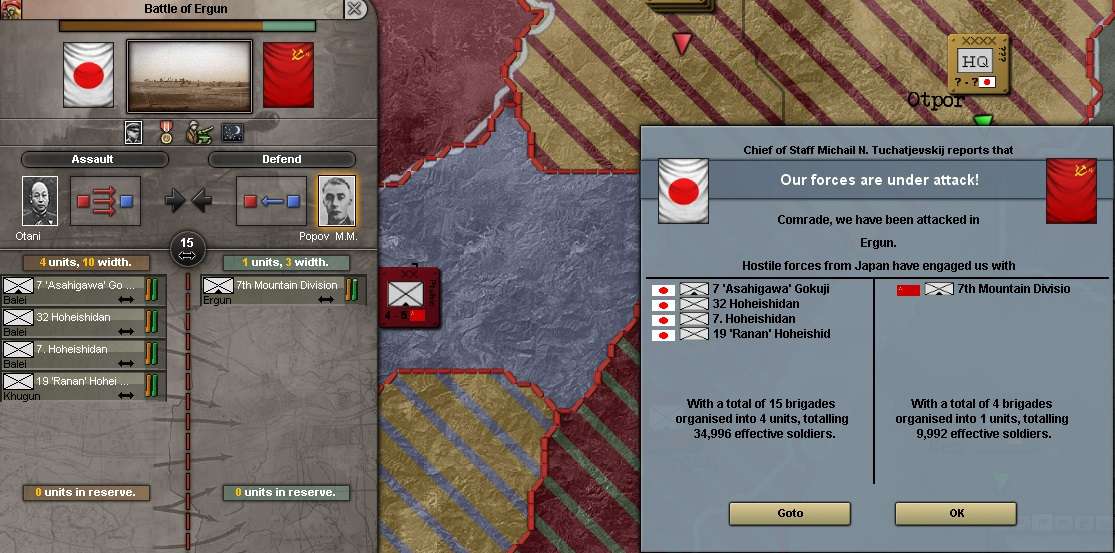
Everybody echoed the toast, then sat down to the traditional pre-meeting luncheon. Petrova looked at Stalin, then Malenkov, then back at Stalin. Malenkov still appeared uncomfortable, Stalin was in the best mood he had been in years. Certainly, the victory over Italy had been a victory for world socialism. Certainly, Mussolini as a puppet was better than Mussolini as an enemy. But she still did not understood what was going on.
All of a sudden, a bell rang. Stalin smiled even wider. “Oh, excellent, desert has arrived! Before we begin our desert, I thought we might like a little music.”
Everybody fell silent. After a few moments, two shots rang out. Nobody spoke. A couple of the more timid members dove under the table. Then, the music began: Wagner’s “Ride of the Valkyries.”
“Finally, I can enjoy this song again.”
Sokolov quietly slid next to his wife. “Hello, dear.”
“Fedya… what just happened?”
“I figured out why Comrade Stalin was so eager to go to Naples. Mussolini had the most interesting house guests…”
“I see. And Mussolini? How can we trust him?”
“You know those few tourists we saw earlier today?”
“Yes, what of it?”
“They seemed to gravitate towards the Vatican’s medieval arms and armor exhibits. Did you notice that?”
“Uh, no?”
“In particular, the swords and the shields.”
Petrova took one last look, but not Stalin. At Rokossovsky.
[1] Vitka is the diminutive of the Russian name Viktor.
[2] Still my favorite description of Mussolini. It came from a French newspaper, if memory serves.
[3] The reference is to Lenin’s Last Testament, in which he attacked all of the Communist leaders for many faults: Stalin’s was rudeness. IRL, Stalin was furious when he heard it, but over time began to treat it as a joke. According to Russian Wikipedia (and Trotsky), replied this when Lenin’s wife read the letter to the XIII Congress of the Community Party in May 1924:
– So what, if I am actually rude… Ilich [Lenin] proposed to you to find another, who might be distinguished from me only by his greater politeness. Well, why not! Try to find [one].
[One of Stalin’s friends replied] – It is nothing! You do not frighten us with rudeness, our entire party is rude, proletarian!
It’s sort of a play of words – Lenin meant “rude” in the sense of “uncouth”, but Stalin’s friend took it as “coarse”, or the sort of thing uneducated workers would espouse. The play on words works in English too, as rude can mean both things in English.
nice update, sorry if i repeated this question but will you continue past Europe's demise
?
?
So, how many divisions did the Pope have?
The European Axis were defeated after 10 months of fighting. The total European campaign from the moment the men landed on the beaches of Finland and crossed the Dniestr was 21 months. Pretty good on AI only HQ's. The Far East will be a challenge because it swallows up Divisions in its waste space compared to the funnel of Western Europe.
The European Axis were defeated after 10 months of fighting. The total European campaign from the moment the men landed on the beaches of Finland and crossed the Dniestr was 21 months. Pretty good on AI only HQ's. The Far East will be a challenge because it swallows up Divisions in its waste space compared to the funnel of Western Europe.
So, how many divisions did the Pope have?
The European Axis were defeated after 10 months of fighting. The total European campaign from the moment the men landed on the beaches of Finland and crossed the Dniestr was 21 months. Pretty good on AI only HQ's. The Far East will be a challenge because it swallows up Divisions in its waste space compared to the funnel of Western Europe.
I have never won a game of HoI3. I have at best fell into a Cold War as Britain and into 1943 as the USSR. I feel dumb here
nice update, sorry if i repeated this question but will you continue past Europe's demise
?
We will continue until we accomplish all of our victory conditions. I choose not to share them
So, how many divisions did the Pope have?
The European Axis were defeated after 10 months of fighting. The total European campaign from the moment the men landed on the beaches of Finland and crossed the Dniestr was 21 months. Pretty good on AI only HQ's. The Far East will be a challenge because it swallows up Divisions in its waste space compared to the funnel of Western Europe.
He had four, but two were HQs, if memory serves.
I have never won a game of HoI3. I have at best fell into a Cold War as Britain and into 1943 as the USSR. I feel dumb here.
I've "won" two games of HOI3 independently (that is, not as the result of an iAAR) -- one as the US and one as Germany (until I invaded the US, at which point I got dominated and ragequit
Will Stalin free Albania? What about Italy's colonies?
Excellent questions!

